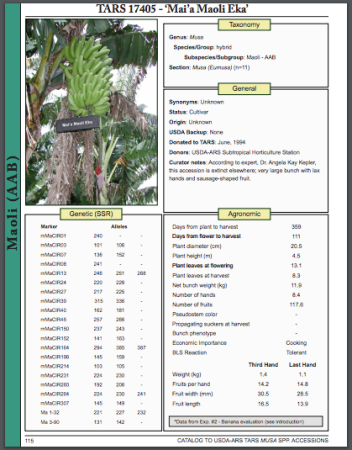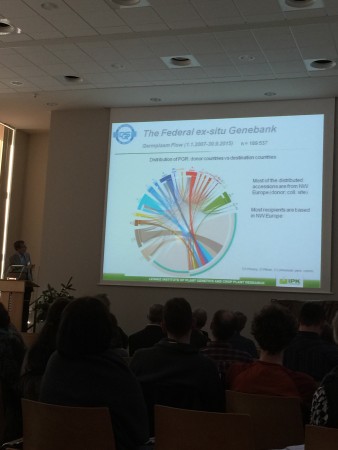 What better way to start the new year than with an attractive catalog of banana accessions from USDA? Especially as, coincidentally, the Musa Germplasm Information System also debuts a new iteration of the website. This from a Facebook post today:
What better way to start the new year than with an attractive catalog of banana accessions from USDA? Especially as, coincidentally, the Musa Germplasm Information System also debuts a new iteration of the website. This from a Facebook post today:
It is now possible to order ITC accessions from MGIS, an online database on genebank accessions of wild and cultivated bananas. The latest release also added information on 1,288 accessions for a total of 3,630 accessions maintained in 11 field and in vitro collections.
That Mai’a Maoli Eka cultivar in the photo from the USDA catalog of course features in MGIS, so you can order it if you like the look of it…
Ah no, wait. According to GRIN, it’s not available. Bummer.
